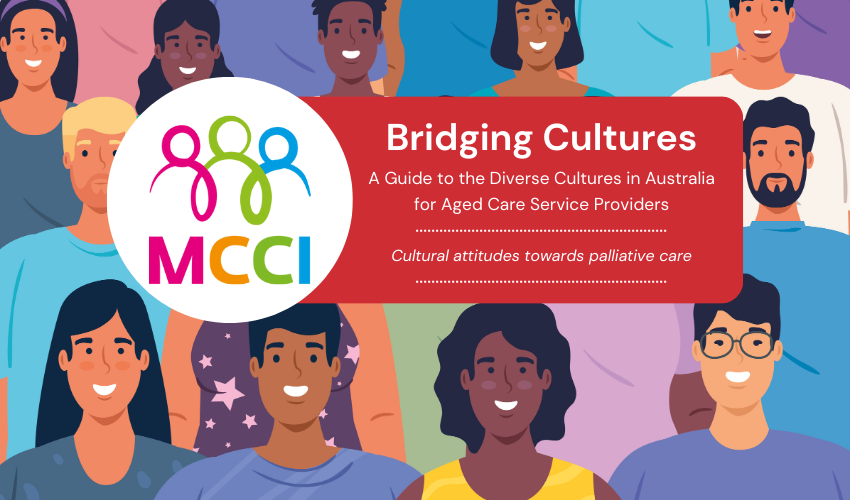To better understand the care preferences of individuals from different cultural backgrounds it is recommended that aged care teams receive education about cultural diversity.
As an example of the complexities in providing Palliative Care to a person with a CALD background it’s important to understand the influence of religion on their end-of-life decisions. However, it’s also important to understand that there are a number of religions that cross language and cultural boundaries. When working with a person facing a life-limiting illness having knowledge of this cultural diversity ensures personalised care can be provided benefiting both the individuals receiving care and their families.
In the following extract from Bridging Cultures, you can access information about cultural attitudes towards Palliative Care by region and country, including the diversity within these geographical regions.
Click here to download: Cultural Attitudes towards Palliative Care.
Bridging Cultures is a resource developed by Partners in Culturally Appropriate Care (PICAC) NSW & ACT to enhance the understanding of culturally and linguistically diverse (CALD) ageing populations in Australia.
PICAC NSW & ACT is a project under the auspices of: Multicultural Communities Council of Illawarra (MCCI)
The complete guide includes:
• The role of the carer in the CALD context
• Cultural attitudes towards dementia, palliative care and continence
• History of CALD migration to Australia and demographics
• Customs and food
• Visiting and caring for the elderly
• End-of-life considerations
• Key events and cultural facts
Click here to download the complete guide.


